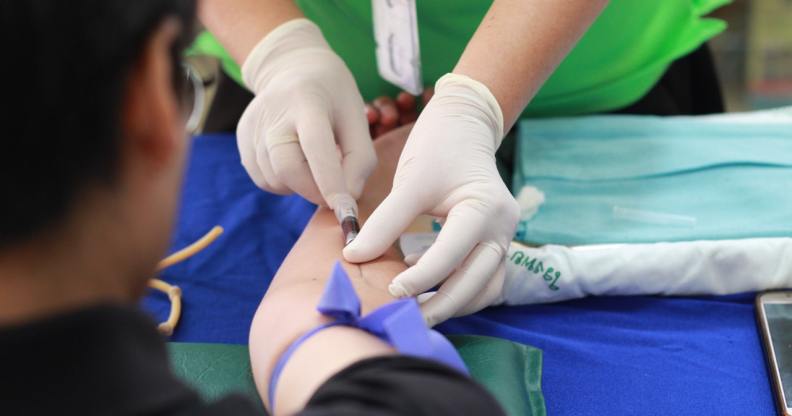Pressure mounts for Donald Trump to take gay and bisexual blood donation reforms even further

(Pexels)
As blood stocks continue to fall amid the pandemic, 20 attorneys general have joined calls for Trump to further ease restrictions on blood donation for gay and bisexual men.
The attorneys general, who are the chief legal advisors to their state’s government, wrote an open letter to Trump’s department of health and human services advising a gender-neutral, behaviour-based screening of blood donors.
“The discriminatory restrictions against blood donations by healthy gay and bisexual Americans have persisted for far too long,” they write.
The outdated restrictions began in the days of the AIDS pandemic, when gay and bisexual men were given a lifetime ban on blood donation. This ban was eventually lifted in 2015, but only if they had not been sexually active for a full year.
In light of the current pandemic the restrictions were recently reduced to three months following sustained pressure from politicians and LGBT+ activists.
But as America’s blood centres continue to face a serious “national supply issue”, the attorneys general – all Democrats, from California, Michigan, Virginia and 17 other states – argue that the new deferral just doesn’t go far enough.
“The revised guidance still precludes many LGBT+ Americans from fully contributing to the blood shortages while still requiring a waiting period for healthy individuals,” they write.
Gender-neutral risk-based deferrals of blood donations are safe and feasible, the attorneys general say, and have already been adopted in Spain, Italy, and Portugal.
They point to a 2014 analysis from the Williams Institute at UCLA that shows lifting the restrictions on blood donation from men who have sex with men could free up over 2 million additional eligible blood donors.
This would produce nearly 300,000 pints of additional donated blood annually and save approximately a million lives.

Gay and bisexual men are still subject to outdated restrictions on blood donations (Ana Arevalo/AFP/Getty)
Not only would a safe, risk-based model address blood shortages during these “unprecedented times”, but it would also “protect the blood supply and donor’s dignity”.
And they identify a further problem with the current restrictions – the new three-month waiting period prevents gay and bisexual men who have recovered from COVID-19 from donating plasma to treat others who are infected with the coronavirus.
“The FDA should make clear that this policy allows MSM and all COVID-19 survivors to donate convalescent plasma,” the legal chiefs write.
“Additionally, changes are needed in the coming years to make our HIV prevention policy fully consistent with science, public health, and equal protection by moving to a risk-based strategy.”

